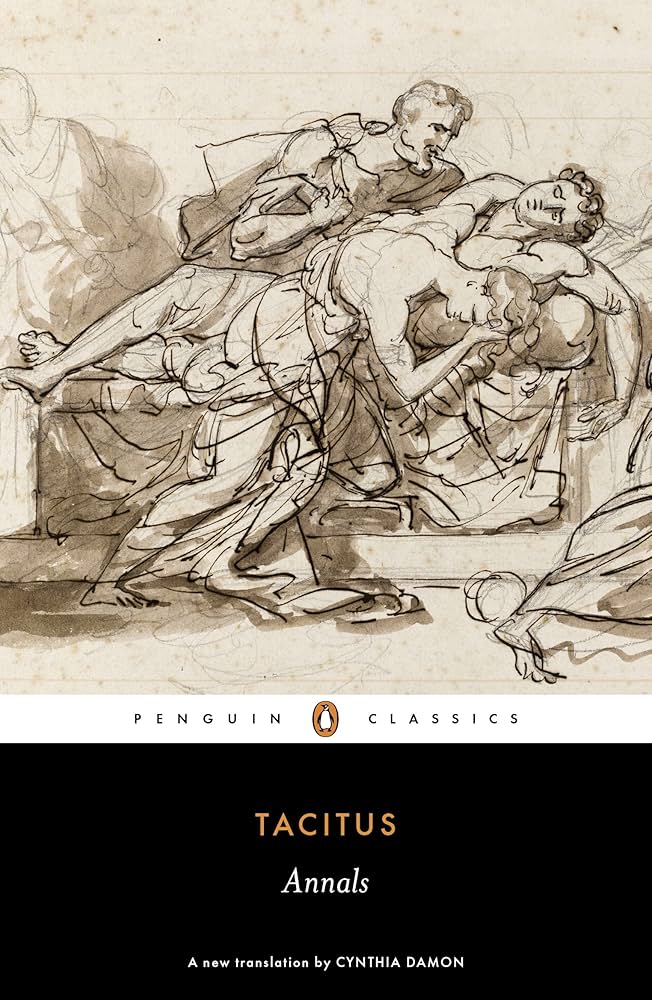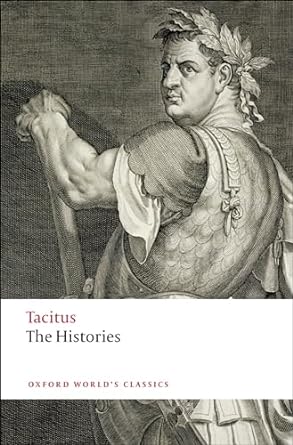Original language: Latin.
I read Annals in the Penguin Classics edition (2012) translated by Cynthia Damon, and Histories in the Oxford World’s Classics edition translated by W.H. Fyfe (1912) revised and edited by D.S. Levene (1997).


Annals is a history covering Rome in the years AD 14-68 (the first five emperors).
It’s not as compelling as Livy. The writing is a little choppy. And boy, are the footnotes in my edition annoying. It is, though, interesting to read about how different Rome was under the emperors from the way it was during the Republic and the period of chaos that ended the Republic.
I enjoyed the part of Annals dealing with when Claudius was emperor. Claudius himself was a historian.
There’s a lengthy story about how Messalina, Claudius’s wife and empress, openly married a lover, Silius, during Claudius’s absence from Rome. The two of them plotted a coup but Claudius, returning, and his allies quashed it with many executions (including that of Messalina). The whole story was enjoyable Game of Thrones stuff. (I have not seen the TV series I, Claudius. This story is depicted in one of the episodes.)
56 CE. (Quote from Tacitus.)
Nero [as a 19-year-old Roman Emperor] used to wander the city’s streets, brothels and bars arrayed in slave garb to disguise his identity, with companions to grab the wares on display and attack passers-by, who were so unwitting that Nero himself took a blow to the face and flaunted it.
Rome in 56 sounds a lot like New York in the 1970s.
More from Tacitus.
Of Poppaea Sabina (who became Nero’s second wife)
“This woman had everything but respectable character.” Like Amy Rigby’s Leslie, she had no ex-lovers, just additional ones. And like Liz Phair in “Girls! Girls! Girls!,” she got away, almost every day, with what the girls call murder.
Last thoughts on Annals:
Nero was like a gangster. He just kept on killing prominent people on flimsy or invented evidence. Entertaining to read but must have been awful to live through.
Histories is a narrative of the bloody year 69, known as the Year of the Four Emperors.
Last thoughts on Tacitus
Tacitus was a good to great writer, writing about a very turbulent and interesting time. His focus, properly, was on the Roman Empire (who he often calls “we”). I really did enjoy all the Game of Thrones-style conspiracies, sex, and violence. I’m glad I learned about a period of history – the early Roman Empire – that I new next to nothing about before. An interesting thing is that the so-called Pax Romana was not all that peaceful – there seemed to be constant wars on the fringe of the Empire (Germany, Judaea).
Leave a Reply